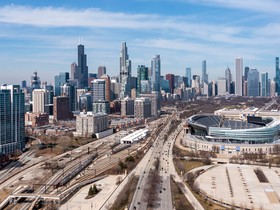Online poker in India, frozen since August after a sweeping ban on real money gaming, has a flicker of hope after the Supreme Court suggested that tournaments based on skill might fall outside the new federal Act.
However, legal experts caution against leaping to conclusions. The remarks from the Supreme Court were oral, non binding, and focused on free to play contests without entry fees. The court did not carve out a paid poker tournament exemption. It did not issue an order that changes the status quo for real money poker.
India’s sweeping law that targets all real money online gaming across the nation has created deep uncertainty. Operators shuttered services overnight and within 72 hours of Parliament’s approval, nearly every major operator pulled real money games. The sweeping blackout was quickly dubbed “India’s Black Friday.”
PokerBaazi, PokerStars India, Junglee Poker, Adda52, Natural8, Spartan Poker, and MPL Poker all shut real money play.
But the suggestion that poker tournaments are about to resume for cash is not supported by the record.
What the Supreme Court Actually Said
The hearing held on November 4 included oral observations that skill-based competitions could sit outside the new Act. Those comments were made in the context of a petition from a chess player who said he plays online for a “livelihood” and was about to launch an app.
During the hearing, Justice Pardiwala questioned the petitioner’s counsel:
“You say you are a player, that you want to play, it is your only source of income and you want to join these proceedings here. Are you betting or gambling? How do you raise an income?”
The counsel clarified that his client was not engaged in gambling or betting, but only participated in online chess tournaments hosted by companies.
“Then there is no problem for you [from the Act],” Justice Pardiwala responded. “They [the government] does not object to tournaments. Tournaments are completely excluded.”
He further asked, “Why come here? Now really, tell us, are you playing in tournaments or not?”
However, according to a legal expert familiar with the case, the discussion was limited to free-to-play tournaments with no entry fee involved, and the remarks were verbal, non-binding, and not recorded in any formal order.
In other words, the court did not issue any written exemption for tournaments played for real money. Without a formal order, there is no binding relief for paid formats — including online poker tournaments.
Although Indian High Courts have previously recognized poker as a game of skill, that precedent does not resolve the current situation. The new federal law targets all real-money games and wagering irrespective of skill.
Even if a future ruling narrows the scope of the Act, another major hurdle remains — taxation. Online real-money gaming, including poker and betting, attracts a 40% levy under India’s Goods and Services Tax (GST) framework, a rate that makes operating profitably extremely challenging.
The Supreme Court has directed the Union Government to file a detailed counter-affidavit before the next hearing, scheduled for November 26. Until then, there is no formal relief for real-money poker operators.
The Law is Not Notified, but the Market is Still Offline
Contrary to several local reports, the government has not notified the law. Two months have passed since the Presidential assent, and the statute remains dormant. The Union Government itself acknowledged this delay this week.
Technically, that means operators could resume services without violating a law that is not yet in force. In practice, the risk environment is high, and the industry has taken a cautious stance.
By late August, major brands had exited. Flutter, the parent company of PokerStars and Junglee Games, criticized the abrupt policy shift and pulled its real money products. WPT Global waited on expected enforcement before it withdrew on October 1. Some offshore rooms remain reachable, but most regulated operators are gone.
The economic shock has been severe. The market had been projected to grow to nine billion dollars by 2029. The ban halted that trajectory overnight.
What This Means For Players
For players, nothing in the Supreme Court’s hearing changes access to real money poker today. There is no new permission to run paid tournaments. Free to play games have continued in some places, with brands offering zero buy-in promotions and consumer prizes.
Any pathway back for real money poker faces a sequence of hurdles. First, the court would need to address the constitutionality of the federal Act or clarify its scope. Second, any carve out would have to cover paid, entry fee tournaments. Third, the 40% GST would need review for a viable market to return.
There is also state versus union complexity. Past victories in state courts, such as the Tamil Nadu case that reopened a banned market, are not a template for a nationwide fix. A federal framework means a single court outcome will carry broader consequence, but it also raises the legal bar.
Meanwhile, the state of Karnataka is reportedly drafting its own bill to regulate online gaming within its borders. The proposed legislation aims to ban games of chance while licensing and regulating games of skill. However, the bill has yet to be enacted, and it remains unclear whether the state would recognize poker as a game of skill under the new framework.
Indian gaming operators are watching the docket and waiting. The Supreme Court set November 26 as the next key date. That timetable will determine whether the case moves into substantive arguments or continues with procedural steps.
Key recent milestones in India’s online poker saga
| Date | Event | Impact |
|---|---|---|
| Aug 2025 | Parliament passes federal online gaming ban | Operators suspend real money games ✔️ |
| Aug 2025 | Market dubbed India’s Black Friday | Players lose access across major sites ✔️ |
| Sep 2025 | Media report Oct 1 enforcement target | No formal notification issued ❌ |
| Oct 1 2025 | WPT Global exits India | Another international option leaves ✔️ |
| Nov 2025 | Supreme Court oral remarks on skill contests | Non binding, focused on free to play ❌ |
| Nov 26 2025 | Next Supreme Court hearing due | Potential clarity on scope and timeline |
The short answer is simple. No, online poker for real money is not back in India. Not yet. The court has not blessed paid tournaments, the law is not notified but still looms, and the tax regime is punishing. The earliest meaningful update is expected when the Supreme Court reconvenes on November 26.






